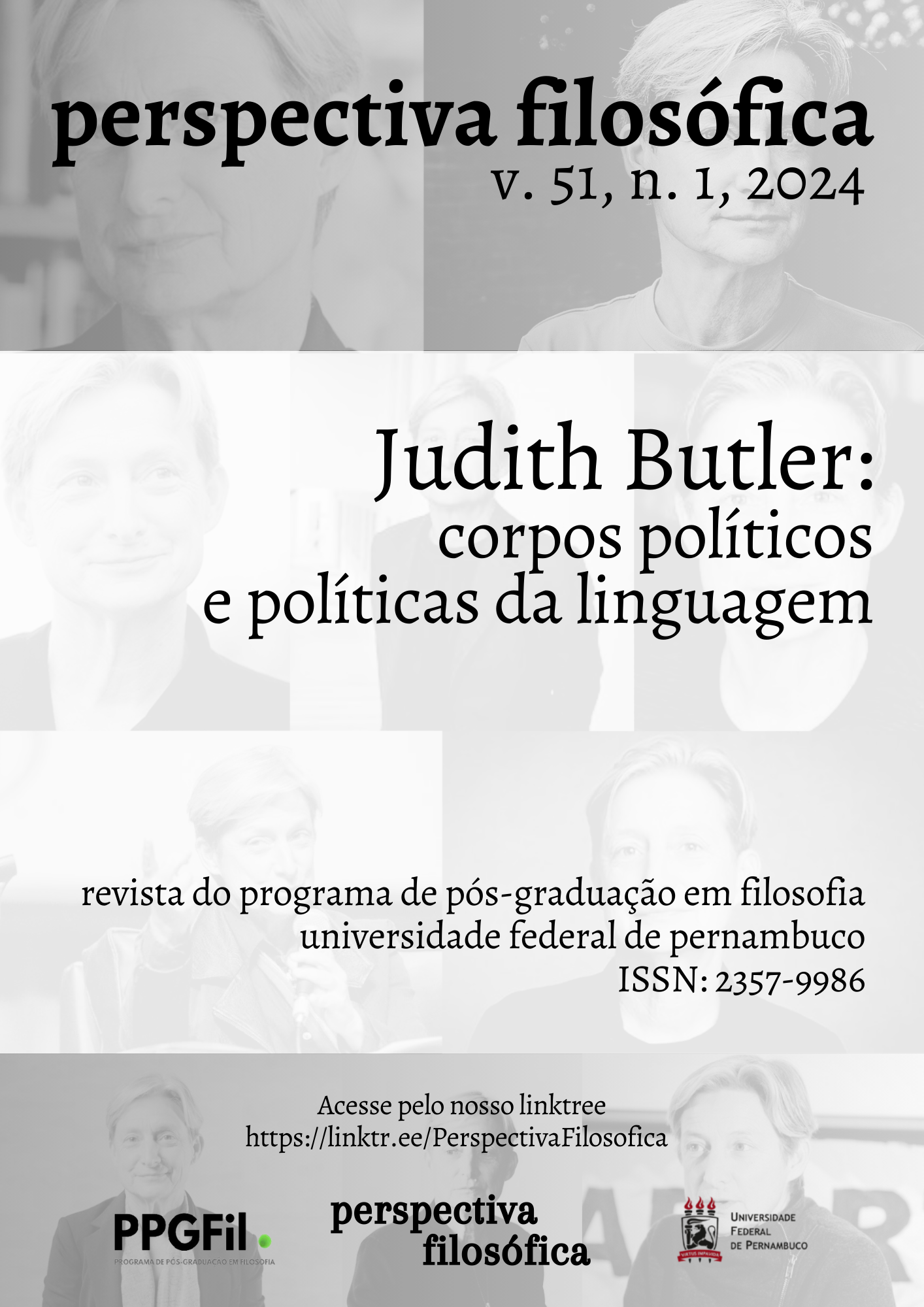Entity realism and discontinuity of Science
a response to Elsamahi
DOI:
https://doi.org/10.51359/2357-9986.2024.258597Keywords:
Ian Hacking, Elsamahi, pessimistic meta-induction, entity realismAbstract
Elsahami, in his Could Theoretical Entities Save Realism? (1994), offers a set of problems that should be a threat to the alleged improvements of entity realism over explanationist realism (or theory realism, in entity realism's vocabulary). Those criticisms were driven particularly to Hacking's entity realism (1983). In this present article, I will briefly appreciate Elsamahi's argumentation recognizing some of its merits and some of its problems. My efforts will be especially concentrated on the assumption that entity realism's criterion might be revised in that cases of theoretical changes in which the replaced theoretical entities turned to be considered fictional ones; this is a similar strategy than to answering to some versions of pessimistic meta-induction. I will argue that, far from Elsamahi's thought, entity realism is compatible to those theoretical changes that discarded the ether, the caloric, and the flogisto, three entities that usually cause trouble to explanationist realism.
References
CARMAN, C. "Realismo científico" se dice de muchasmaneras, al menos de 1111: una elucidacióndel término "realismo científico". Scientiae Studia, 3(1), 43-64, 2005.
CARTWRIGHT, Nancy. How the Laws of Physics Lie. New York: Oxford University Press, 1983.
CHAKRAVARTTY, Anjan. A Metaphysics for Scientific Realism: Knowing the Unobservable. Cambridge University Press, p. 48, 2007.
EGG, Matthias. Causal Warrant for Realism about Particle Physics. Journal for General Philosophy of Science / Zeitschrift für Allgemeine Wissenschaftstheorie 43 (2):259-280, 2012.
EINSTEIN, Albert & INFELD, Leopold. A evolução da física: o desenvolvimento das ideias desde os primitivos conceitos até à Relatividade e aos Quanta. Trad. Monteiro Lobato. Companhia Editora Nacional. 1977.
ELSAMAHI, Mohamed. Could Theoretical Entities Save Realism? In David & Richard Hull & Burian (ed.), PSA: Proceedings of the Biennial Meeting of the Philosophy of Science Association. 173 – 180, 1994.
FEYERABEND, Paul. Consolations for the Specialist. In: Imre Lakatos & Alan Musgrave (eds.), Criticism and the Growth of Knowledge. Cambridge [Eng]: Cambridge University Press. 1970.
FEYERABEND, Paul. Realism, Rationalism, and Scientific Method. Cambrigde: Cambridge University Press. 1981.
GROSS, Alan G. Reinventing Certainty: The Significance of Ian Hacking's Realism. PSA: Proceedings of the Biennial Meeting of the Philosophy of Science Association 1990:421 – 431. 1990.
HACKING, Ian. Experimentation and scientific realism. In: Leplin, J. (ed.) (1984). Scientific Realism. Berkeley: University of California Press, 1984.
HACKING, Ian. Representing and Intervening: Introductory Topics in the Philosophy of Natural Science. Cambridge: Cambridge University Press, 1983.
KITCHER, Philip. The advancement of science: science without legend, objectivity without illusions. New York: Oxford University Press, 1993.
KUHN, Thomas. The Caloric Theory of Adiabatic Compression. Isis: A Journal of the History of Science 49:132-140, 1958.
KUHN, Thomas S. A estrutura das revoluções científicas. Trad. Beatriz Vianna Boeira e Nelson Boeira. 9. ed. São Paulo: Perspectiva. (Coleção Debates 115). 2007.
LAUDAN, L.. Progress and its Problems: Toward a Theory of Scientific Growth. University of California Press. 1977.
LAUDAN, Larry. A confutation of convergent realism. Philosophy of Science 48 (1):19-49, 1981.
LIPTON, Peter. Inference to the Best Explanation. London and New York: Routledge. 1991.
LYONS, Timothy D. Scientific Realism and the Pessimistic Meta-Modus Tollens. In Steve Clarke & Timothy D. Lyons (eds.), Recent Themes in the Philosophy of Science: Scientific Realism and Commonsense. Dordrecht: Springer. pp. 63-90. 2002.
MARTINS, Roberto de A. A dinâmica relativista antes de Einstein. Revista Brasileira de Ensino de Física. v.27. n.1 pp.11-26, 2005.
MAXWELL, Grover. The ontological status of theoretical entities. In Herbert Feigl & Grover Maxwell (eds.), Scientific Explanation, Space, and Time: Minnesota Studies in the Philosophy of Science. University of Minnesota Press 181-192. 1962.
OLIVEIRA, T. Feyerabend e a crítica às condições empiristas de redução interteórica. Kínesis, Vol. IV, n° 08, 2012, p. 123-134. Disponível em Acesso em 04 de julho de 2020.
OLIVEIRA, T. Algumas razões para levar a sério a metaindução pessimista. Principia: an international jornal of epistemology, 18(2), 269-290, 2014. doi: https://doi.org/10.5007/1808- 1711.2014v18n2p269
OLIVEIRA, T. L. T. “Uma solução Baseada No Realismo Experimental Para Dois Argumentos Pessimistas”. Veritas (Porto Alegre) 62 (3):595-623, 2017. https://doi.org/10.15448/1984-6746.2017.3.28684.
OLIVEIRA, T. L. T. Uma proposta em dois passos para reabilitar o realismo experimental. Kriterion, v. 60, p. 727-748, 2019.
PSILLOS, Stathis. Scientific realism and the 'pessimistic induction'. Philosophy of Science 63 (3):314, 1996.
PUTNAM, Hilary. Mathematics, Matter and Method. New York: Cambridge University Press, 1975.
SOUSA E BRITO, Armando A. “Flogisto”, “Calórico” & “Éter”. Ciência & Tecnologia dos Materiais. Vol. 20, n. 3/4 pp. 51- 63, 2008.
SUÁREZ, Mauricio. Experimental realism reconsidered: How inference to the most likely cause might be sound. In: Nancy Cartwright, Stephan Hartmann, Carl Hoefer & Luc Bovens (eds.), Nancy Cartwright's Philosophy of Science. Routledge 137-163, 2008.
VAN FRAASSEN, Bas C. The Scientific Image. New York: Oxford University Press. 1980.
VICKERS, Peter. A Confrontation of Convergent Realism. Philosophy of Science 80 (2):189-211, 2013.
Downloads
Published
Issue
Section
License
Copyright (c) 2024 Tiago Oliveira

This work is licensed under a Creative Commons Attribution 4.0 International License.
A Revista Perspectiva Filosófica orienta seus procedimentos de gestão de artigos conforme as diretrizes básicas formuladas pelo Conselho Nacional de Desenvolvimento Científico e Tecnológico (CNPq). http://www.cnpq.br/web/guest/diretrizesAutores que publicam nesta revista concordam com os seguintes termos:
Os autores mantém os direitos autorais e concedem à revista o direito de primeira publicação, sendo o trabalho simultaneamente licenciado sob https://creativecommons.org/licenses/by/4.0/deed.pt_BR que permite o compartilhamento do trabalho com reconhecimento da autoria e publicação inicial nesta revista.
Os autores têm autorização para assumir contratos adicionais separadamente, para distribuição não-exclusiva da versão do trabalho publicada nesta revista, com reconhecimento de autoria e publicação inicial nesta revista (Consultar http://opcit.eprints.org/oacitation-biblio.html).

Esta revista está licenciada com uma Licença Creative Commons Atribuição 4.0 Internacional.













